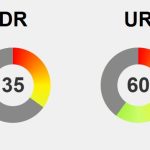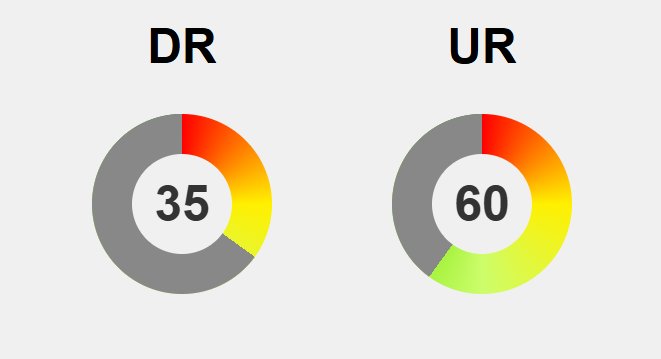Step into the world of Karl Marx, a revolutionary thinker whose ideas continue to challenge our understanding of capitalism’s deepest flaws. Born amid Europe’s industrial upheaval, Marx saw firsthand how wealth and power were concentrated in the hands of a few, while the many suffered exploitation and inequality. His critique uncovered the systemic contradictions—overproduction, cyclical crises, ecological damage—that threaten capitalism’s stability. But his vision goes beyond analysis; Marx called for a worker-led revolution rooted in collective consciousness and organized action. Can the working class unite to overthrow the exploitative system and create a society founded on shared ownership and justice? As inequality deepens and environmental crises escalate, Marx’s ideas remain a powerful blueprint for transformative change. His provocative insights invite us to confront uncomfortable truths and consider whether true societal overhaul is attainable through collective effort and revolutionary purpose.
Unveiling Marx’s Revolutionary Ideas Rooted in a Turbulent World
Karl Marx’s ideas didn’t develop in isolation; they were shaped by the turbulent world he lived in. Born in 1818 in Trier, Germany, Marx grew up in a relatively comfortable environment, benefiting from his father’s legal career and good education. Yet, witnessing the stark poverty and brutal factory conditions sweeping through Europe’s rapidly industrializing society left a deep impression on him. These firsthand observations of inequality and exploitation fueled his desire to understand the underlying economic forces that kept so many in hardship.
Marx’s thinking was influenced by a mix of Enlightenment philosophy, German idealism, and the rising labor movements of his time. He saw society as divided into conflicting classes—most notably, the bourgeoisie, who owned the means of production, and the proletariat, who sold their labor to survive. This division wasn’t just about economics; it created ongoing social conflict, which Marx believed was the engine of history. His focus on class struggle aimed to reveal the systemic inequalities baked into capitalism and how they drove societal change.
At the core of Marx’s critique was the idea that capitalism is built on exploitation. Workers produce value through their labor, yet they are paid wages that often don’t reflect the true worth of what they create. The surplus value—the excess profit owners extract—is what fuels wealth accumulation among the elite. Marx argued that this cycle of exploitation isn’t just a flaw—it’s the fundamental mechanism that sustains inequality and deepens the divide between rich and poor, making social harmony impossible under the current system.
He also believed that capitalism contains inherent contradictions that threaten its existence. The relentless pursuit of profit leads to overproduction, causing economic crises like recessions and depressions. Meanwhile, wealth becomes concentrated in the hands of a few, translating into political power that perpetuates the status quo. These internal tensions—economic, social, and environmental—highlighted what Marx saw as capitalism’s instability and unsustainability. He predicted that these contradictions would eventually lead to upheaval and revolutionary change.
Understanding this, Marx viewed history as a series of class conflicts rooted in economic structures. From feudal lords versus serfs to factory owners versus workers, each era’s social order was shaped by struggles over resources and power. Recognizing these patterns was central to his belief that systemic change was inevitable. For Marx, the revolutionary potential of the working class—when awakened to their shared interests—was the key to overthrowing oppressive systems and creating a more just society.
Marx’s ideas went beyond theory; they were a call to action. He believed that only through organized effort and collective consciousness could the working class challenge the dominance of the ruling elite. His vision was for workers to see their common plight and unite to dismantle the exploitative structures of capitalism. This revolutionary spirit continues to inspire those seeking social justice, emphasizing that lasting change requires awareness, solidarity, and a willingness to challenge the roots of inequality.
Foundations of Marx’s Thought: Class Struggle, Exploitation, and Systemic Contradictions
Karl Marx’s revolutionary perspective on capitalism and social class is rooted in a few fundamental ideas that continue to shape his critique. At the core is the concept of class struggle, which Marx saw as the main engine of historical change. Society is divided into groups with opposing interests—most notably, the bourgeoisie, who own the means of production, and the proletariat, who sell their labor to survive. This division isn’t just about economic differences; it creates ongoing conflict that drives societal evolution. Understanding this struggle is essential to grasping how capitalism functions and why it’s inherently unstable.
Marx argued that capitalism is built on exploitation. Workers produce value through their labor, but wages often fall short of the worth they generate. The surplus value—the excess profit owners extract—is the foundation of wealth accumulation for the elite. This cycle of extracting surplus value deepens economic inequality and consolidates power, making social divisions more entrenched. Marx believed that this systemic extraction isn’t merely an economic flaw but a moral issue, highlighting the unfairness of a system that benefits a privileged few at the expense of the many.
Another key idea in Marx’s thought is that capitalism contains internal contradictions that threaten its survival. The relentless pursuit of profit encourages cost-cutting and overproduction, which often results in economic crises like recessions and depressions. These downturns aren’t accidental but inherent to the system’s logic, exposing its instability. Additionally, the concentration of wealth in the hands of a small elite translates into political influence, allowing the ruling class to shape policies that perpetuate inequality. These contradictions—economic, political, and ecological—highlight capitalism’s unsustainability and its tendency toward periodic upheavals.
Marx also emphasized that history is driven by conflicts over resources and power, with each era marked by class struggles rooted in economic structures. From feudal societies to modern industrial states, societal change has always stemmed from the tension between oppressors and the oppressed. Recognizing these patterns is crucial for understanding how systemic transformation can occur. Marx believed that the ongoing class struggle isn’t just political; it reflects economic realities that create the conditions for revolutionary change.
Central to Marx’s critique is the idea that capitalism’s flaws can only be addressed through collective action. He saw organized labor, political movements, and the development of class consciousness as essential tools for challenging the existing order. When workers recognize their shared interests and organize, they gain power to challenge the dominance of the ruling class. This awareness—what Marx called class consciousness—is the catalyst for revolutionary change, transforming individual grievances into a collective movement for systemic overhaul.
Marx’s ideas extend beyond theory; they serve as a blueprint for action. He believed that only through organized effort and collective awareness could the working class overthrow the exploitative structures of capitalism. This revolution wouldn’t merely replace one set of rulers with another but would establish a system rooted in shared ownership, equality, and social justice. His emphasis on collective effort remains relevant, inspiring those who seek to challenge entrenched economic and social inequalities.
In essence, Marx’s foundational concepts—class struggle, exploitation, systemic contradictions, and revolutionary potential—offer a comprehensive view of capitalism’s inner workings. They reveal how economic interests shape social relations and why these conflicts are unlikely to be resolved without fundamental change. His ideas challenge us to see beyond surface disparities and confront the deeper structures that sustain inequality, making his critique as relevant today as it was in his time.
Marx’s Deep Dive into Capitalism’s Internal Flaws and Societal Impact
Marx believed that capitalism’s internal contradictions are its most defining and destructive flaws. One of the clearest issues is the concentration of wealth in the hands of a small elite, while the majority of workers remain trapped in poverty. This imbalance isn’t merely about inequality; it fuels cyclical crises. Overproduction, driven by the relentless pursuit of profit, floods markets with goods that no one can buy, leading to recessions and depressions. These crises aren’t accidents—they are inherent to the system’s very logic, exposing capitalism’s inability to sustain long-term stability.
Another major flaw Marx identified is the insatiable drive for profit that encourages cost-cutting at the expense of workers’ well-being. Companies seek to maximize surplus value—profit generated beyond wages paid—by squeezing workers for more work, lower wages, and worse conditions. This relentless exploitation deepens economic divides and fosters social tensions that threaten the system’s stability. The cycle of extracting surplus value not only enriches the few but also perpetuates a system rooted in inequality and injustice.
Capitalism’s obsession with growth presents ecological contradictions as well. The constant expansion of industries and markets depletes natural resources and damages ecosystems. Companies prioritize profits over sustainability, often ignoring environmental limits. This ecological strain is a direct consequence of capitalism’s internal drive for endless growth, leading to climate change, resource depletion, and environmental degradation—crises that threaten human survival and future stability.
Furthermore, the concentration of wealth translates into political influence, allowing a small ruling class to shape laws and policies that protect their interests. This political power reinforces economic inequality, making it harder for the working class to challenge the status quo. These intertwined economic and political contradictions create a system that perpetuates injustice, resistant to reform and incapable of resolving its own systemic issues.
Marx saw these contradictions as signs of capitalism’s inevitable collapse. The internal tensions—economic crises, ecological breakdowns, political manipulation—generate unrest and instability. As exploited classes become aware of their shared interests, they have the potential to unite in revolutionary action. These systemic flaws aren’t just problems; they are the seeds of transformation, pointing toward the necessity of radical change to establish a more just and sustainable society.
Understanding these systemic flaws highlights the importance of alternative economic visions that prioritize social equity and environmental sustainability. For those interested in exploring comprehensive critiques of capitalism and potential pathways forward, learning about socialist economic models can provide valuable insights into building a more just and sustainable future.
The Power of Collective Action: Marx’s Vision for Worker-Led Revolution
Marx believed that changing capitalism’s exploitative nature required more than reforms; it demanded a worker-led revolution. He saw the working class, or proletariat, as the driving force capable of overthrowing the ruling elite—the bourgeoisie—who owned the means of production and profited from their labor. For Marx, this wasn’t about small protests or incremental changes; it was about workers recognizing their shared interests and uniting to dismantle the system that kept them oppressed.
This idea of collective action was central to Marx’s vision. He argued that history is driven by class struggles, and the ongoing conflict between workers and capitalists would only escalate until a decisive upheaval occurred. When workers become aware of their common plight and understand their collective power, they can challenge the dominance of the wealthy few. Marx believed that class consciousness—the awareness of shared interests—was the spark that would ignite revolutionary change.
To bring this about, Marx emphasized the importance of organization. Workers needed to build unions, political groups, and revolutionary councils that could amplify their voice and coordinate efforts. Such collective structures serve as the backbone of revolutionary activity, helping workers see that their struggles are interconnected rather than isolated. When organized in solidarity, workers could challenge both economic exploitation and political manipulation, moving from individual grievances to systemic overhaul.
Marx also stressed that education and awareness were vital. Workers must understand their role within the broader economic system and realize that their collective strength can challenge entrenched power. Building this consciousness requires deliberate effort—through unions, activism, and education—to help workers see their shared interests and the possibility of a different society. Once awareness turns into action, the potential for revolutionary change grows stronger.
Today, this call for collective effort remains relevant. Workers can organize through unions, advocate for fair wages, and participate in social movements that push for equality. Digital tools and social media now enable broader mobilization and awareness-raising, making it easier to unite individuals around a common cause. The core idea endures: when workers recognize their collective power and organize, they challenge the foundations of exploitation and inequality.
For Marx, revolution was not just a hope—it was a necessity. Only through organized, conscious effort could the working class challenge the entrenched power structures that sustain inequality. This revolution would dismantle the existing order and replace it with a society rooted in shared ownership, fairness, and social justice. His call to action continues to inspire those committed to building a more equitable world through collective effort and revolutionary purpose.
Reflections on Marx’s Enduring Critique and the Quest for Social Justice
Marx’s critique of capitalism remains strikingly relevant today, as economic inequality and social injustice continue to shape societies around the world. His analysis of internal contradictions—such as wealth concentration, cyclical crises, and environmental degradation—offers a powerful lens for understanding why disparities persist despite reforms and technological advances. These issues are not accidental; they are embedded in the very structure of capitalism, which prioritizes profit over people and sustainability. Recognizing these systemic flaws helps explain why superficial fixes often fall short, urging us to look deeper into the roots of inequality and exploitation.
The concentration of wealth and power is more acute than ever, with a small elite controlling vast resources while millions struggle to meet basic needs. This imbalance translates into political influence that shields the interests of the wealthy, making genuine reform difficult. Marx’s idea that meaningful change requires organized collective effort remains vital. Building solidarity and consciousness among workers and marginalized groups is essential to challenge entrenched interests and push for a more equitable society. Without this awareness, efforts at reform risk being superficial or temporary.
Despite capitalism’s resilience and ability to adapt, Marx’s critique provides a blueprint for systemic change. History shows that movements driven by collective awareness and action can challenge and even dismantle oppressive systems. Superficial reforms often serve only as patches rather than solutions, failing to address the deep-rooted causes of inequality. His call for revolutionary change pushes us to consider whether more fundamental shifts—such as shared ownership and social justice—are necessary to create sustainable, fair societies that prioritize human dignity and ecological health.
Marx also highlights the moral and ethical dilemmas embedded in our economic systems. The relentless pursuit of profit at the expense of human well-being and the environment raises urgent questions about fairness and sustainability. His critique invites us to rethink societal values—should growth and profit remain the primary goals, or should social justice and ecological preservation take precedence? These questions are increasingly urgent as climate change and ecological crises threaten our collective future, demanding a reevaluation of what kind of society we want to build.
In the end, Marx’s ideas challenge us to see beyond surface-level solutions and confront the systemic roots of inequality. His emphasis on awareness, organization, and collective action remains a powerful call to those committed to social justice. While the path forward is complex and uncertain, history demonstrates that concerted effort can challenge entrenched power and open new possibilities for a more equitable world. His revolutionary vision continues to serve as a guiding light for anyone dedicated to building societies rooted in shared ownership, fairness, and human dignity.






